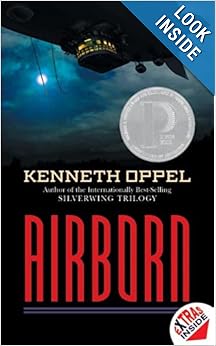I’m completely behind both writing and housework this week due to a bout of strep throat (thankfully, on the mend now due to penicillin). This was the second time I’ve been laid up for several days since Sukkos, so it was pretty much a drag, and I really need to try to wrap up at least one story this week. However, I just feel the need to share this with my readers.
While lying in bed trying very hard not to swallow (it just hurt too much), I read a slew of middle grade and YA novels. Now, I know that tween and teen novels tend to share certain characteristics, and that many of these meet the psychological needs of tweens and teens. But as a once-but-no-longer teen, a particular trait rubbed me the wrong way.
Yes, older kids need to develop their growing independence, and reading novels can be a safe way to do it. But does every middle grand and YA novel (okay, that’s an exaggeration) have to show a pack of tweens or teens saving the world/nation/town/etc. with little or no help from adults? Really? Because it’s unrealistic, and frankly gets annoyingly predictable after a while.
Sure, I think that teens need to feel powerful. But they also need to be respectful of both peers and adults.
Pardon me as I slip into the wacky world of fable:
Imagine you’re driving a car. As you arrive at a stop sign, your child tells you it’s safe to make the turn. However, you see that there’s a car coming across your path, and they don’t have a stop sign. So you wait. Then, as you approach the next light, he starts yelling, “Drive faster! You can make it before it turns red.” Are you going to do it based solely on what your 11 year old is telling you?
What’s lacking? Life experience
Several of the novels I have read seem to think that the judgment and abilities of a tween or teen are sufficient to save the world. Frequently, my 11 y o gives me advice. And occasionally, I take it. But his life experience is 27 years shorter than mine. If I listened to his back seat driving, we’d have had three accidents–this week!
It seems to me, that it’s more realistic to show teens learning from adults, and then taking initiative, innovating, thinking creatively, and so on, based on those experiences. Show the teen characters becoming more independent, but also often making mistakes–because that’s a HUGE part of the teen experience: messing up when you really want to act grown-up.
Adults can play a supporting role…should they?
Some of the middle grade and YA books I’ve read show this process. The Hunger Games, for example, shows t(w)eens making mistakes and asking for and accepting the advice of adults. (It’s interesting to note also, that Katniss really wants her mom to show initiative and leadership in her family and resents having to fill in the void herself.) Hatchet shows our teen protagonist relying on the lessons he’s learned from past interactions with adults, and The School Story includes a helpful teacher. Many of the books of Joseph Bruchac include absent parents whose influence remains strong on their children, and Harry Potter often turns to grown ups for advice and help.
Some of these examples already strain my ability to suspend my disbelief. But there are many, many books that are worse. They’re supposed to be novels, but almost read like an episode of the Power Rangers: Kids don’t need adults! Adults are dead, useless, or untrustworthy! Kids can handle anything, even invaders from space!
Right.
I can’t tell if my reaction is because I’m over the hill and jaded, or if this set-up is actually dumb. Maybe kids really need to outright reject adults to meet their psychological needs. I don’t know. Personally, since I write for tweens and teen, it’s important I get a handle on this issue.
So, I’m turning to y’all for opinions. Tell me what you think about the role of adults in kid and teen literature in the comments below.

